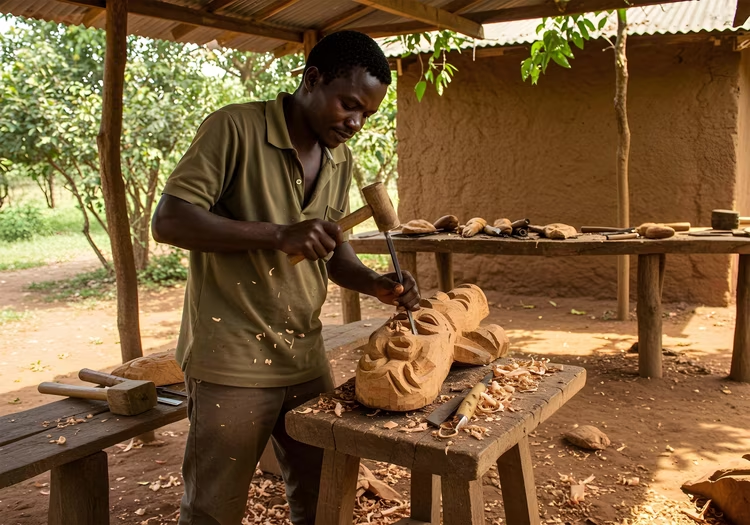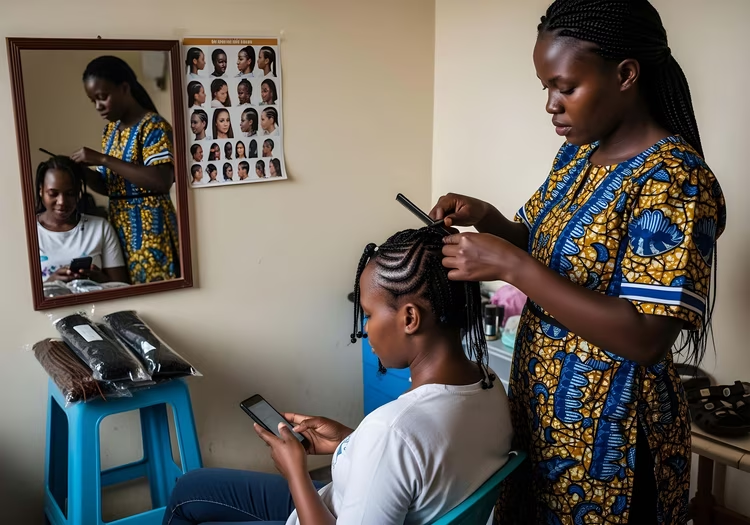Uncover practical steps for transforming a hobby into a sustainable business in Zambia. Unlock market interest, assess viability, and learn how to register with PACRA. Learn how to find customers and key lessons for success.
Let’s be honest. So many of us are sitting on skills that could easily make us money. Whether it’s baking, sewing, doing hair, fixing gadgets, making crafts, or even tutoring kids, these are real skills with value. But we often brush them off as “just a hobby,” while complaining about the rising cost of living or feeling stuck at a job that doesn’t pay enough.
What if I told you that the very thing you do for fun, the thing people always compliment you on, could become a proper,registered business? One that earns you a steady income, gives you freedom, and may even employ others in the future.
I will walk you through exactly how to turn your hobby into a business that’s not only legitimate but also profitable. We’ll discuss assessing the viability of your side hustle, registering it with PACRA, and marketing and finding clients using relatable examples.

How to Monetise Your Skills
Start with what you’re already doing. That one thing that people keep asking you to do for them. Maybe you’re the friend who’s always baking for birthdays. Or the one whose crochet tops get complimented at every event. Or maybe you’re that person everyone calls when they need to fix something.
That is your starting point.
Take my friend Mwansa, she loves making scented candles in her free time. She’d started during COVID (when everyone was up to the most peculiar things) just as a form of therapy, really; something to keep her hands busy. Then one day, she made a few extra candles and gave them out as Christmas gifts. A month later, two friends asked her if they could buy more. A year later, Mwansa’s candle brand supplies a boutique in Lusaka, and she’s doing pop-ups on weekends. It all started with one simple question: “Would people pay for this?”
So, before you run to register a business, start by testing the waters. Produce a few items or offer your service on a small, manageable scale. Sell at your church fun day, at a market, or even just on your WhatsApp status. Do customers show interest? Do they return for more? That’s your first clue that you’re onto something.

How To Know if Your Skill is Viable
Once a few customers have made purchases, the initial excitement sets in. But before jumping headfirst, pause. You need to assess whether this hobby can be turned into a sustainable side hustle or even a full-time income down the line.
Ask yourself:
- Can I do this consistently without burning out?
- Do I know how much it costs me to produce or offer the service?
- Am I charging enough to make a profit?
- If demand increases, can I scale or train someone to help?
Many people get stuck because they start without figuring out their numbers. A friend of mine used to make gourmet popcorn. It was delicious, but she was losing money because she hadn’t calculated how much oil, packaging and transport were costing her. Once she sat down and did the math, she adjusted her pricing and finally started making real money.
How to Register Your Business with PACRA in Zambia
If you’re getting consistent orders and want to take things seriously, registration is your next step. It helps you look professional, organises your business identity, and opens doors for funding, partnerships, and contracts.
PACRA, the Patents and Companies Registration Agency, is where you go to formalise your business. Here’s how it works.
First, decide what type of business you want to register. If it’s just you running things, you can go for a business name (this is also called a sole proprietorship). It’s cheaper and easier, but remember that you and the business are legally one, meaning if your business has debts, you owe them too.
If you want to register something more official, especially if you plan to work with others or grow fast, you can register a limited company. This protects you legally and gives your business its identity.
Once you’ve decided, the next step is to go to the PACRA website (www.pacra.org.zm) or any of their offices and do a name search. This is to make sure your business name isn’t already taken. You’ll submit up to three name options, and they’ll reserve one for you.
After your name is cleared, you’ll fill out the necessary forms: Form one for a sole trader, Form three for a limited company, and pay the registration fee. As of now, it costs about K111 for a business name and around K1,000 for a limited company. You’ll also automatically be issued a TPIN (Taxpayer Identification Number) from ZRA, so you’re ready to pay taxes and operate legally.
Registration need not intimidate entrepreneurs. It’s a one-time process (plus small annual renewals), but it makes a big difference in how seriously people take your business, plus a bulk of the process is online, so you can do it from the comfort of your home.

Finding Customers
Now that your business is registered and you have your name and branding sorted, the next step is finding your customers.
Start where you already are. Use your WhatsApp; not just your status, but create a broadcast list or business account. Regular posts, prompt responses to inquiries, and requesting reviews or referrals from satisfied customers are essential. Instagram, Facebook and TikTok are also powerful, especially if you post videos or before-and-after pictures. Make your content clean and engaging, and always include pricing and contact details. People don’t want to guess.
Attend pop-up markets, school fairs, and church bazaars. Introduce yourself, hand out flyers, and offer small samples or discounts to get people to try your product or service. Word of mouth in Zambia is strong; let it work for you. And most importantly, be consistent. Customers return when they trust you’ll deliver the same quality every time.
Lessons from the Field: What Not to Do
- Don’t underprice your work just to get customers. You’ll end up resenting your hobby and burning out. Know your worth and educate your audience if needed.
- Don’t try to do too much at once. Focus on 1–2 products or services you can do well, then expand as you grow.
- And don’t ignore your records. Even if you’re not a “numbers person,” keep track of your income, expenses, and customer feedback. It’ll help you adjust and improve over time.

The Start of Something New
Turning a hobby into a business isn’t just about money; it’s about owning your time, creating value, and taking control of your future. So many successful businesses in Zambia started in kitchens, backyards, or on a whim. The difference is that someone took that hobby seriously.
It is also important to respect one’s craft. Yes, you may be a phenomenal baker, hairdresser or tech whizz. But never forget to give plenty of room to develop and pour into your skill cup. Research what your competitors are doing internationally, and consider taking a course to improve yourself. Always strive for quality packaging of your work, regardless of what your market looks like. This allows you and your clients to respect your business.
So, if you’ve been waiting for a sign, this is it. Get started. Start small, but start smart. Test, plan, register, and grow. You never know, your passion project could be Zambia’s next big brand.








